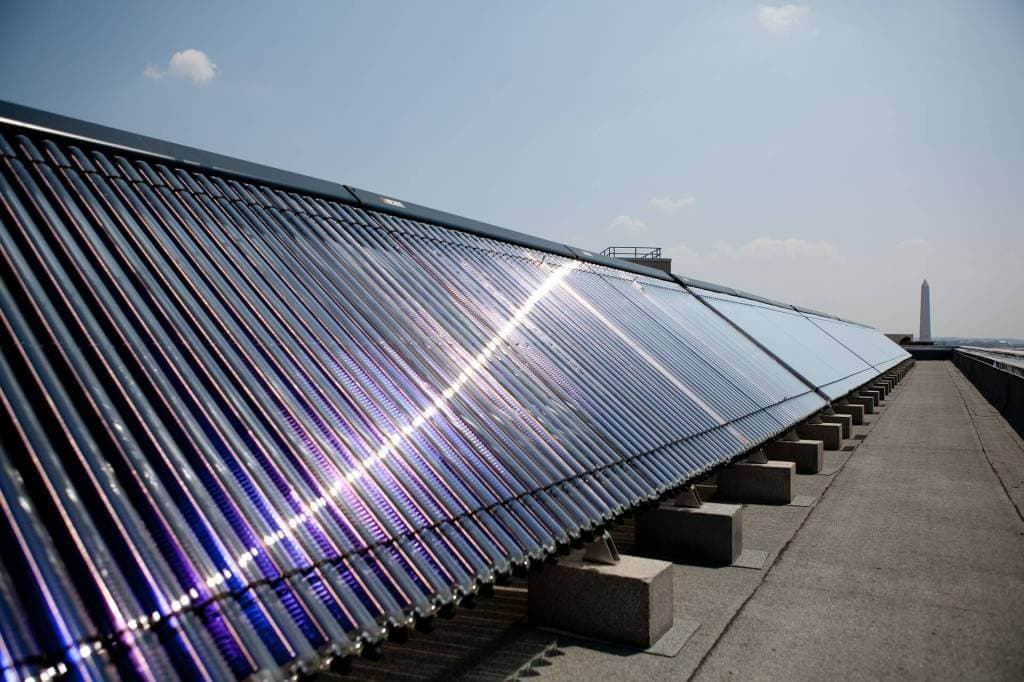
A Solar Water Heater is a device which provides hot water for any purpose using Sun’s thermal energy for heating the water. It is generally installed at the terrace or where sunlight is available. The water gets heated during day time and is stored in an insulated storage tank for use when required including mornings. Solar water for the domestic purpose are very popular as they suffice the need of hot water for bathing, washing, cleaning etc., particularly on cold days.
What happens on a cloudy day?
Since solar energy systems require sunlight, the bulk of production will take place under sunny conditions only. The output is directly proportional to the amount of infrared sunlight available at any given moment. A system can generate 50-70% of its typical output under bright overcast conditions. When rain or excessive days of cloudy conditions exist, the use of auxiliary backup where conventional energy will be needed.
Does Solar Water Heater work in any climate?
Solar water heaters can operate in any climate. Performance varies depending, in part, on how much solar energy is available at the site and also on how cold the water comes into the system.
However on cloudy days also, if it is for a day or two, you still get warm water as water gets heated due to diffused radiation available in the atmosphere. The system, therefore, should be either connected to an electric geyser in the house or an electrical back-up should be provided in the storage tank of the system which is switched on when water is not sufficiently hot. So, you get hot water all the time even on rainy days.
What happens when the sun is not shining?
In general, a solar hot water heating system should be able to generate up to 85% of your hot water needs from solar energy. In the event that there are many cloudy days in a row, or you have increased demand in your hot water consumption (several guests spending the weekend at your house), a backup element kicks in and provides the required amount of hot water.






























